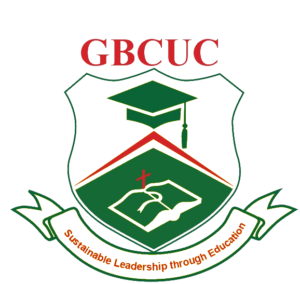
PROGRAM INFORMATION
TYPE: BACHELOR DEGREE
DURATION: 4 YEARS
ACCREDITATION: HEA, ZQF LEVEL 7
BACHELOR OF ARTS WITH EDUCATION (HISTORY AND RELIGOUS EDUCATION
The study of History at Degree level promotes the important abilities and qualities of mind. These abilities can only be acquired through the study of History. These abilities are particularly valuable for the graduate as citizen and are readily transferable to many occupations and careers.
History provides a distinctive education by providing a sense of the past, an awareness of the development of differing values, systems and societies and the inculcation of critical yet tolerant personal attitudes. History’s ability to promote understanding between cultures and between national traditions remains as important as ever.
The academic study of religion has a distinctive multidisciplinary character, drawing upon resources and approaches from archaeology, art, anthropology, history, literature, philosophy, psychology, and sociology. It also has a strong multicultural orientation, exploring a plurality of traditions and a wide range of behaviours and beliefs.
The study of religion leads in many directions, qualifying undergraduates for further study in graduate school or preparing them for entry to the job market. Religion departments train students in critical thinking and cross-cultural understanding. Such skills are in high demand in many professional fields. In addition, many religion majors or minors go on to study law, business, education, or medicine. Some students may choose to make religion the centre of a professional career, either as the leader of a religious community, or as an academic specialist in higher education. In short, the study of religion offers a wide array of opportunities and a firm foundation for a successful and fulfilling career.
A major in Religious Studies provides one path to a liberal education. Because religion is one of the most powerful forces in our world, the study of religion will improve understanding of the complex relationships between religion and politics, economics, and science. In a global community, an appreciation for the varieties of religious life and experience—through events, texts, rituals, theologies, and artefacts—will establish a foundation for a more informed analysis of contemporary issues, such as abortion, evolution, faith-based initiatives, gender issues, capital punishment, marriage, civil rights, and school prayer.
Program Outline
YEAR 1
| EDU1121 | INFORMATION AND COMMUNICATION TECHNOLOGY |
| HIS 1151 | INTRODUCTION TO THE STUDY OF HISTORY AND HISTORIOGRAPHY |
| HIS 1152 | PRE-COLONIAL HISTORY OF ZAMBIA |
| RES 1151 | INTRODUCTION TO WORLD RELIGIONS |
| EDU1222 | HISTORY AND PHILOSOPHY OF EDUCATION |
| HIS 1253 | HISTORY OF CENTRAL AFRICA |
| HIS 1254 | 19TH CENTURY SOUTHERN AFRICA |
YEAR 2
| EDU2123 | SPECIAL EDUCATION,GUIDANCE AND COUNSELLING |
| HIS 2151 | HISTORY OF SOUTHERN AFRICA FROM 1800-1965 |
| HIS 2152 | HISTORY OF CENTRAL AFRICACOLONIZATION TO INDEPENDENCE |
| RES 2151 | AFRICAN CONVERSION TO CHRISTIANITY AND ISLAM |
| EDU 2224 | EDUCATIONAL PSYCHOLOGY |
| HIS 2253 | HISTORY OF ZAMBIA SINCE INDEPENDENCE |
| HIS 2254 | WORLD HISTORY 1850-1900 (NATION BUILDING) |
| RES 2252 | RELIGION AND HUMAN DEVELOPEMENT |
YEAR 3
| EDU3121 | EDUCATIONAL RESEARCH METHODS |
| HIS 3151 | THE ECONOMIC HISTORY OF AFRICA |
| HIS 3152 | ECONOMIC HISTORY OF ZAMBIA |
| RES 3151 | ISLAM IN AFRICA |
| EDU3222 | SOCIOLOGY OF EDUCATION |
| HIS 3253 | HISTORICAL RESEARCH METHODS |
| HIS 3254 | HISTORY TEACHING METHODS |
| RES 3252 | HISTORY OF CHRISTIANITY IN AFRICA |
YEAR 4
| EDU 4121 | THEORY AND PRACTICE OF EDUCATION |
| HIS 4151 | WORLD HISTORY RIVALRY AMONG MAJOR WORLD EMPIRESAND NATIONS FROM 1870-1918- |
| HIS 4152 | AFRICA SINCE 1945 |
| RES 4151 | RES TEACHING METHODS |
| EDU 4222 | EDUCATIONALLEADERSHIP AND MANAGEMENT |
| ELECTIVE | |
| HIS 4254 | ADVANCED HISTORY TEACHING METHODS |
| RES 4252 | SOCIOLOGY OF RELIGION |
| ELECTIVES | |
| HIS 42510 | LAND AND LABOUR PATTERNS IN CENTRALAFRICA (ZAMBIA, MALAWI AND ZIMBABWE |
| HIS 42511 | THE WORLD DURING THE INTER WAR ERA |
| EDU 4121 | EDUCATIONAL RESEARCH PROJECT |
Programme Learning Outcomes
This course is designed so that on completion of the course students should be able to:
- conduct teaching practice by adhering to the professional standards, values and ethics of the teaching profession.
- demonstrate the effectiveness of the professional commitment and knowledge they acquire.
- identify the pupils who are in need of help in school environment and behavioral challenges and build a career in teaching profession.
- develop a thorough understanding of learning difficulties, the root causes and effects on the individual.
- develop skills of teaching, learning, and assessment that enable effective and efficient practice of professional teaching and learning.
- acquire knowledge of human development and development of social, economic, and cultural institutions; and of the interactions of all these factors
- guide the student community to identify their present learning ability and to find out the relevant solutions
- apply the various approaches and tools for undertaking educational research
- obtain knowledge about the impact of cross cutting issues such as Gender, ethnicity etc. and the effects on human learning.
- develop professional competences with ethical perspectives relevant to practice in global contexts, with an interest of life-long learning along with the negotiation of change.
- demonstrate in depth teaching subject knowledge content of various teaching subjects that come under this course.
- Create Understanding of professional, ethical, legal, security and social issues and responsibilities.
- analyze problem to encounter in social research aspects and define the solution.
- Demonstrate creativity in research undertakings.
- engage in continuing professional development
- demonstrate that they are qualified and talented professional teachers and ready to join the teaching profession.
